Edie Melson's Blog, page 190
August 24, 2020
Dipping the Quill Deeper - Writing with Your Whole Heart

by Eva Marie Everson @EvaMarieEverson
Look at these words from 2 Chronicles 31:
…and he did what was good and right and true before the LORD his God. And in every work that he began in the service of the house of God, in the law and in the commandment, to see His God, he did it with all his heart. So he prospered.
“He” is King Hezekiah, the 13th king of Judah. Hezekiah, unlike his father who “did evil in the sight of the Lord,” was a good king. A righteous king. During his reign he enacted religious reforms that declared only Jehovah would be worshiped in the temple, which he both purified and repaired. Then, he declared that the centralized worship would be there and there alone. He reinstated Passover. This, we read, brought “great joy” to Jerusalem.
But What Does That Have to do With Me?You are a writer, right? And, I assume that many of you are in service to God, just as Hezekiah was in service to God.
And, I assume, you want your work—your words—to make a difference. To be “pleasing in the eyes of the Lord,” as the Bible records the works of men like Hezekiah and not like those of his father.
So, then, let’s look carefully at the words written about Hezekiah. What did he do that caused him to prosper in whatever he put his hand to? It’s really fairly simple.He did what was good and right and true. He sought God.Every work he began, he did so with all his heart.
Is this what you do in your work? How does that translate for you … to do what is good and right and true within writing and publishing? Last year I heard a prominent speaker who told that, for years, she had told a hilarious story from the stage that always got people rolling. She had, indeed, gained fame from it. The only problem was … it wasn’t true, and she told it as though it were. It had begun simple enough. She told the true story and got a laugh. Then added to it and got a bigger laugh … and so on and so forth. Oh, she said, but how freeing when she finally admitted that it simply wasn’t true!
But what about what is good? Do you do your best when you write, or do you simply throw words on paper and hope for the best? Do you aim your words toward the kingdom or toward a paycheck? (Let me reiterate here that we earn our wages and wages are important, but are they your primary focus?)
Do you see God’s will in the work? Do you want to assure that your readers will see Him and His hope and His plan for them? And what about you? Are you seeking God more diligently based on what you write (nothing has ever effected me quite like writing The Final Race with Eric Eichinger, a book about the life of Olympiad Eric Liddell. I grew as a Christian in ways hard to describe just doing the research and the work because it forced me to stop and ponder the strength of the Lord inside us when we should be overcome by our circumstances).
Bottom Line Do you begin (and end) your work by putting your whole heart into it? There are bound to be things about writing that you don’t like (for some, it’s editing, for others research …). But even these things should be done with your whole heart. Give it everything you’ve got. Remember, your work is your gift back to the Giver of your talents. He is worthy of only our best.
TWEETABLEDipping the Quill Deeper - Writing with Your Whole Heart - @EvaMarieEverson on @EdieMelson (Click to Tweet)
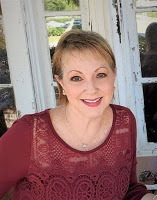 Eva Marie Everson is the president of Word Weavers International and the director of its two conferences. She is the multiple award-winning author of nearly 40 works and has received awards as a speaker and Bible teacher. Eva Marie is often seen at writers conferences across the States. She served as a mentor for Jerry B. Jenkins’ Christian Writers Guild for several years, and taught as a guest professor at Taylor University in 2011. She and her husband make their home in Central Florida where they enjoy their grandchildren. They are owned by one small dog and a princess cat.
Eva Marie Everson is the president of Word Weavers International and the director of its two conferences. She is the multiple award-winning author of nearly 40 works and has received awards as a speaker and Bible teacher. Eva Marie is often seen at writers conferences across the States. She served as a mentor for Jerry B. Jenkins’ Christian Writers Guild for several years, and taught as a guest professor at Taylor University in 2011. She and her husband make their home in Central Florida where they enjoy their grandchildren. They are owned by one small dog and a princess cat.
Published on August 24, 2020 22:00
August 23, 2020
8 Basic Lies Our Fiction Characters Believe
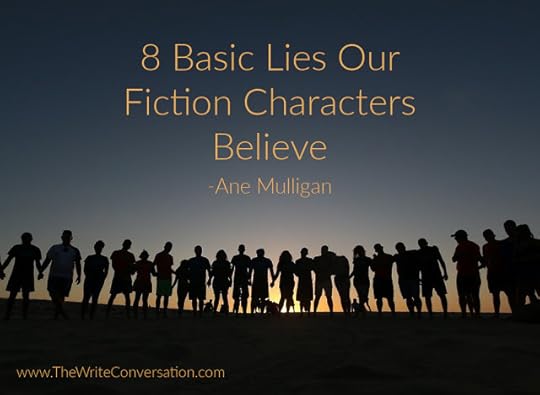
by Ane Mulligan @AneMulligan
In July, I talked about Core Motivations and how they work with the lie your character believes. Several years ago, my writing was transformed when I learned about the lies our characters believe. Fellow author Amy Wallace studied psychology in college and passed on the informatin to me. Most people believe a lie. It stems in our childhoods and are embedded within us, before we can reason it away.
Whichever lie the character's backstory reveals, that helps dictate their motivation. You can use the lie to help plot, since a character's motivation will affect their worldview and everything they do.
Let's say your character's lie is I'm not good enough. He will spend his life either trying to prove it wrong, or he'll fall victim to the lie. This is a great lie for first responders, FBI agents, police, etc. If our hero is one who tries to prove this lie is wrong, he will be the first one to enter a burning building to rescue a pet. He's the first one to charge through enemy lines. Do you see how you can plot by the motivation?
With these lies, there are characteristics you will see in people. Here is the list of the 8 basic lies and their characteristics. You can vary somewhat if you need to fit one into your story. Then tie those into last month's Core Motivations (June 22nd) and you'll have three-dimensional characters your readers will love.
Adult characteristics of the Lie:
1. I’m a disappointment: S/he wouldn’t be very open to trying new things. After all, they disappoint themselves and others. S/he tends to get stuck in a rut that is familiar. This could be great conflict if they were suddenly thrust into a situation where they had to do something new.
2. Not good enough: This is a very strong lie, often used for men and strong female leads. S/he either lives their life trying to always prove they are good enough. Or, s/he falls victim to their lie and give up. It the latter, this character wouldn’t be the one vying for a promotion or volunteering to go on a dangerous mission.
3. I’m not enough or defective: Her/his actions might be similar to the one who’s a disappointment but from a different angle. Depending on their backstory, s/he feel very unworthy. S/he might have been much loved, but if s/he has other siblings, s/he may compare themselves with them. If s/he’s a middle child, this is a good lie, because when #3 child came along, if it were during those first 5 years, s/he would believe s/he wasn’t enough for their parents. They had to try for another. The first-born could easily feel this too.
4. Too much to handle and will get rejected: this lie plays out a lot in romances. Someone who believes this lie won’t let themselves get close in a romantic situation. If they begin to feel love, they break up to avoid getting rejected. The hurt isn’t worth the risk.
5. It’s all my fault: S/he usually strives for respect and validation. They carry a lot of guilt for things they perceive are their fault. They always believe if they had done this or done something differently, the end result would not have been the disaster it is.
6. Helpless - powerless to fix things: This lie leads to a fear of being controlled. S/he avoids confrontation & problems. S/he wants to be in control of life and all that surrounds her. S/he can be bossy & attempt to wrestle control from others. S/he fears being controlled & this provides super conflict for both inner and outer journeys. S/he’s afraid God’s will is exactly the opposite of what they want. S/he fights against what s/he perceives as someone else wanting to control her/his life, whether it’s the opposite sex or God.
7. Unwanted/unloved: This character might seek love in “all the wrong places” from all the wrong people. Or they might shy away from a romantic situation because they know they’re unlovable. This would affect their relationship with God, too. This character, while having some of the “not good enough” symptoms, isn’t as strong a character as one with that lie. This character might always stay in the background. For instance, if they were part of a community theater, they’d be the one to work backstage, sew costumes, but never try out for a part. They avoid center stage.
8. I’m bad: Which could possibly be used as a symptom or excuse for another lie. This lie is seen often in YA books for a character who will make a 180 degree turn around. They project their self-image to the world as protection for their hearts. Remembering that the lie is embedded in early childhood, they’re hurt and don’t want to be hurt again. So they put up a wall of “badness” to keep people away and keep their vulnerability hidden.
What lie does your character believe? How has knowing that helped move your story forward?
TWEETABLE8 Basic Lies Characters Believe - @AneMulligan on @EdieMelson (Click to Tweet)
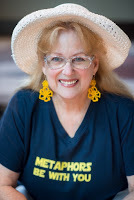 Ane Mulligan has been a voracious reader ever since her mom instilled within her a love of reading at age three, escaping into worlds otherwise unknown. But when Ane saw Mary Martin in PETER PAN, she was struck with a fever from which she never recovered—stage fever. She submerged herself in drama through high school and college. Years later, her two loves collided, and a bestselling, award-winning novelist emerged. She resides in Sugar Hill, GA, with her artist husband and a rascally Rottweiler. Find Ane on her website, Amazon Author page, Facebook, Twitter, Instagram, Pinterest and The Write Conversation.
Ane Mulligan has been a voracious reader ever since her mom instilled within her a love of reading at age three, escaping into worlds otherwise unknown. But when Ane saw Mary Martin in PETER PAN, she was struck with a fever from which she never recovered—stage fever. She submerged herself in drama through high school and college. Years later, her two loves collided, and a bestselling, award-winning novelist emerged. She resides in Sugar Hill, GA, with her artist husband and a rascally Rottweiler. Find Ane on her website, Amazon Author page, Facebook, Twitter, Instagram, Pinterest and The Write Conversation.
Published on August 23, 2020 22:00
August 22, 2020
Am I Generous with My Writing Journey?
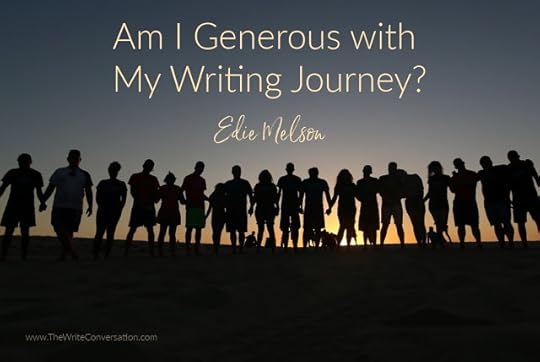
by Edie Melson @EdieMelson
In this case, moreover, it is required of stewards that one be found trustworthy. I Corinthians 4:2
When I think of stewardship, I think about managing something that is owned by someone else. I don’t think of my own life in that context, and I especially don’t think of my writing life that way.
I think of my writing life as a journey. And in a lot of ways that’s what it is.
Truthfully, though, it goes beyond just a journey. It’s also a set of experiences that make me who I am. The situations I’ve been a part of, the things I’ve learned along the way, even the people I’ve come into contact with, make up a very real part of who I am as a writer.
And I’ve come to realize that every aspect of this is a gift from God. It’s something He’s given me to make me into the person He knows I can be. Some of these experiences are filled with joy and others with great sorrow. Each one though, has added something to who I am as a person and as a writer.
What if these experiences aren’t just for me?
I’ve decided that they aren’t just for me. I do not believe God’s given me this abundance to draw on—to fuel and direct my creative endeavors—to have me squander and hoard them only for my on benefit. I believe He expects me to share my experiences with others and allow them to learn through what He’s been showing me.
So instead of hoarding my writing journey, I’m going to share it. Letting those around me see the good, the bad, and yes even the ugly. I'm going to trust that God has a bigger purpose than just me. I'm going to quit hiding away my experiences, letting them gather dust in the dim corners of my memory.
TWEETABLE
Am I Generous with My Writing Journey? - thoughts from @EdieMelson (Click to Tweet)
 Edie Melson is a woman of faith with ink-stained fingers observing life through the lens of her camera. No matter whether she’s talking to writers, entrepreneurs, or readers, her first advice is always “Find your voice, live your story.” As an author, blogger, and speaker she’s encouraged and challenged audiences across the country and around the world. Her numerous books reflect her passion to help others develop the strength of their God-given gifts and apply them to their lives.Connect with her on her website, through Facebook, Twitter and on Instagram.
Edie Melson is a woman of faith with ink-stained fingers observing life through the lens of her camera. No matter whether she’s talking to writers, entrepreneurs, or readers, her first advice is always “Find your voice, live your story.” As an author, blogger, and speaker she’s encouraged and challenged audiences across the country and around the world. Her numerous books reflect her passion to help others develop the strength of their God-given gifts and apply them to their lives.Connect with her on her website, through Facebook, Twitter and on Instagram.
Published on August 22, 2020 22:00
August 21, 2020
Back to School With Your Writing

by Cathy Fyock @CathyFyock
Every fall I get that “back to school” feeling as the leaves begin to show color, the air becomes crisp, and as I watch the endless TV commercials for school supplies. This time of year makes me realize that I only have a few more months to achieve my annual goals, and I have a renewed sense of urgency about getting work done.
What are you doing to go “back to school” and remain current in your field of expertise? You might review these ideas to craft your own plan for upping your game as a thought-leader.What new books have I read on my topic and related topics? Am I reading broadly so that I can gain new perspectives on trends and issues?Am I exploring new learning through webinars, conferences, and programs? Do I attend the “same ole same ole,” or am I looking for cutting edge programs and experiences that will expand my frame of reference?Am I reading widely from periodicals, blogs, and professional journals?Am I challenging myself to try new experiences? To travel internationally? Am I pushing myself beyond my comfort zone? Have I considered teaching a class, writing an article or blog post, or speaking for a conference?Have I identified someone to be my mentor? Who can help me get to the next level or share new insights with me based upon their knowledge and experience?Have I offered to mentor someone? By mentoring others I can continue to learn and grow.Have I formed a Mastermind group with like-minded professionals who can support my growth and development through regular meetings where we share, challenge, and support one another?Have I surrounded myself with colleagues with whom I can discuss issues and trends? Do I belong to a business book club (such as the HR Bookless Club)?Get in the “back to school” mindset and craft your own plan for ensuring that you are growing and learning so that you can better serve your clients and readers.
What’s your best idea for going “back to school”? Share your best strategies!
TWEETABLE
Back to School with Your Writing - @CathyFyock on @EdieMelson (Click to Tweet)
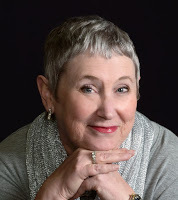 Cathy Fyock is The Business Book Strategist, and works with professionals and thought leaders who want to write a book as a business development strategy. Since starting her business as a book coach in 2014, she has helped more than 160 professionals become published authors. Her most recent book is The Speaker Author: Sell More Books and Book More Speeches. She can be reached at cathy@cathyfyock.com or 502-445-6539.
Cathy Fyock is The Business Book Strategist, and works with professionals and thought leaders who want to write a book as a business development strategy. Since starting her business as a book coach in 2014, she has helped more than 160 professionals become published authors. Her most recent book is The Speaker Author: Sell More Books and Book More Speeches. She can be reached at cathy@cathyfyock.com or 502-445-6539.
Published on August 21, 2020 22:00
August 20, 2020
Assignment Writing and Inspired Writing—What’s the Difference?

by Crystal Bowman
When I write a manuscript for children that I hope will become a published book, it often starts with an inspired idea. I begin with a market research, write a rough draft, then revise a million times (maybe not quite that many but that’s what it feels like). Once the manuscript is completed, I create a proposal and pray my agent can find a home for my new baby. Other times, however, I write books because a publisher assigns me a writing project. Let’s examine the difference.
I once attended a critique group with aspiring writers. When I shared my excitement over my latest assigned book project, one writer said, “Oh, I would never do that! If it’s not my idea, I will not write the book.” Really? To this day she has not been published.
Another Way to Look at ThisIf you want to build a house, you get to decide what size and style home you want. Then you hire a qualified contractor to build it for you because that is what he does. If the contractor said, “Oh, I would never build a house using someone else’s idea,” I doubt the contractor would get much business.
Sally E. Stuart, who published The Christian Writers’ Market Guide for decades once said, “If you were a dress maker and made a blue dress in size 7 and went door-to-door trying to sell it, you probably wouldn’t have much success. But if you offered your services and asked someone what kind of dress they would like you to make, you might get a few offers.
Publishers study the market and they know what sells. For writers who may not be getting writing assignments from publishers, it’s still wise to study publishers’ guidelines and follow them closely. If a publisher is looking for specific genres or topics that resonate with you, then go for it. If not, then it’s not a good fit.
The payment for an assigned project typically differs from a submitted project. When one of my ideas evolves into manuscript, I also write a proposal. If it’s accepted, I receive an advance payment with a royalty contract. When I accept an assignment from a publisher, I do not need to write a proposal. I receive a work-for-hire contract with half payment on singing the contract and half payment on completion of the manuscript, but no royalties.
Bottom LineI am a writer, that’s what I do. I am able to come up with my own ideas and turn them into published books, but I also love being part of a team and making someone’s vision become a reality. So whether my writing is assigned by a publisher, or inspired and proposed by my own little self, writing is my passion and it’s all for the glory of God.
TWEETABLEAssignment Writing and Inspired Writing—What’s the Difference? - Crystal Bowman on @EdieMelson (Click to Tweet)
 Crystal Bowman is an award-winning, bestselling author of more than 100 books for children and four nonfiction books for women. She also writes lyrics for children’s piano music and is a monthly contributor to Clubhouse Jr. Magazine. She loves going to schools to teach kids about poetry. She also speaks at MOPS (Mothers of Preschoolers) groups and teaches workshops at writers’ conferences. When she is not writing or speaking, she enjoys going for walks, working out at the gym, and eating ice cream. She and her husband live in Michigan and have seven huggable grandkids. www.crystalbowman.comwww.facebook.com/crystal.bowmanwww.facebook.com/crystaljbowmanwww.Instagram.com/crystalbowmanauthor
Crystal Bowman is an award-winning, bestselling author of more than 100 books for children and four nonfiction books for women. She also writes lyrics for children’s piano music and is a monthly contributor to Clubhouse Jr. Magazine. She loves going to schools to teach kids about poetry. She also speaks at MOPS (Mothers of Preschoolers) groups and teaches workshops at writers’ conferences. When she is not writing or speaking, she enjoys going for walks, working out at the gym, and eating ice cream. She and her husband live in Michigan and have seven huggable grandkids. www.crystalbowman.comwww.facebook.com/crystal.bowmanwww.facebook.com/crystaljbowmanwww.Instagram.com/crystalbowmanauthor
Published on August 20, 2020 22:00
August 19, 2020
What Stage of Pandemic Grief Are You In?

by Susan U. Neal RN, MBA, MHS @SusanNealYoga
How has the pandemic affected you? We have suffered many losses. The loss of jobs, face-to-face relationships, and much more. When we mourn the death of a loved one or the loss of society as we know it, we go through five stages of grief: denial, anger, bargaining, depression, and acceptance. What stage of loss are you in?
In the spring I was in the denial stage because I thought the pandemic would end in June when viruses such as the flu become dormant. When it didn’t end, I moved into the depression stage. That’s when I wrote the blog post, Fighting Pandemic Burnout.
In July I was surprised when my state, Florida, rose to number two in the nation for coronavirus cases with 15,000 new cases per day. Life as we knew it has unquestionably changed. How are you coping?
PhysicallyPhysical exercise helps me cope. Since the pandemic I walk one to two miles a day, every day. In the morning, before I have a cup of tea, I walk a half-mile. I also walk in my house when I am reading or critiquing my writing. Walking is a stimulating practice that improves my energy and mood. I never walked consistently before the pandemic, but it has become an excellent physical outlet and coping strategy. What have you done to improve your physical health during the pandemic?
SociallySocial distancing has been tough for all of us. Writer conferences are virtual instead of in-person. I’ve limited my socializing to a small group of friends and family. As the president of a Word Weavers Writers Critique Group, I’m hosting Zoom meetings versus in-person. But every Friday night, to socialize, I meet with a few friends at an outdoor restaurant (we’ve all bought small table-top fans to deal with the heat). I also talk for hours on the phone with friends and my sisters. Have you spoken to a close friend recently?
ProfessionallyRegarding my writing career, I accomplished something I wanted to do for eighteen months. I created a course, 7 Steps to Reclaim Your Health and Optimal Weight. This course is popular and helping a lot of people. I feel like I am fulfilling my mission.
In September 2020, I will be helping others lose their pandemic pounds through weekly Facebook Live sessions in my Facebook group, 7 Steps to Get Off Sugar, Carbs, and Gluten . My #1 Amazon best-selling book, 7 Steps to Get Off Sugar and Carbohydrates, will be on sale too. So if you want to lose some weight you’ve gained during the pandemic, please join me in my Facebook group.
As writers we should take this opportunity to be creative. What book has been brewing in your soul? What course have you been scared to create? What project has been low on your list that you could do during this downtime? What virtual course or writer academy could you join?
SpirituallyI haven’t done as well spiritually since I am not physically attending church on Sundays. I miss my church family. Do you? So I added accountability by asking a close friend to watch the Sunday service with me each week. I also try to do a daily devotion right after my half-mile morning walk. How is your spiritual health during this challenging time?
The 1918 Spanish flu pandemic lasted about eighteen months. I believe that until we have a vaccine, life will remain as it is with COVID-19. I’m in the acceptance stage of the grieving process. I accepted this is the new reality for at least the next six months. I don’t like it. No one does. But I’m okay with it. My heart and soul are at peace.
Have you accepted the new reality yet? If not, what stage of grieving are you in?
TWEETABLEWhat Stage of Pandemic Grief Are You In? - @SusanNealYoga on @EdieMelson (Click to Tweet)
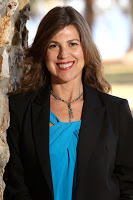 Susan U. Neal, RN, MBA, MHSSusan’s mission is to improve the health of the body of Christ. She has her RN and MBA degrees, as well as a master’s in health science. She is a CERTIFIED HEALTH AND WELLNESS COACH with the American Association of Christian Counselors. She published five books, the Selah award winner 7 STEPS TO GET OFF SUGAR AND CARBOHYDRATES, CHRISTIAN STUDY GUIDE FOR 7 STEPS TO GET OFF SUGAR AND CARBOHYDRATES, HEALTHY LIVING JOURNAL, SCRIPTURE YOGA a #1 Amazon best-selling yoga book, and YOGA FOR BEGINNERS which ranked #3. She published two sets of Christian Yoga Card Decks and two Christian Yoga DVDs that are available at CHRISTINAYOGA.COM. Her digital product HOW TO PREVENT, IMPROVE, AND REVERSE ALZHEIMER’S AND DEMENTIA is a great resource. To learn more about Susan visit her website SUSANUNEAL.COM You can also connect with Susan on FACEBOOK, TWITTER, and INSTAGRAM.
Susan U. Neal, RN, MBA, MHSSusan’s mission is to improve the health of the body of Christ. She has her RN and MBA degrees, as well as a master’s in health science. She is a CERTIFIED HEALTH AND WELLNESS COACH with the American Association of Christian Counselors. She published five books, the Selah award winner 7 STEPS TO GET OFF SUGAR AND CARBOHYDRATES, CHRISTIAN STUDY GUIDE FOR 7 STEPS TO GET OFF SUGAR AND CARBOHYDRATES, HEALTHY LIVING JOURNAL, SCRIPTURE YOGA a #1 Amazon best-selling yoga book, and YOGA FOR BEGINNERS which ranked #3. She published two sets of Christian Yoga Card Decks and two Christian Yoga DVDs that are available at CHRISTINAYOGA.COM. Her digital product HOW TO PREVENT, IMPROVE, AND REVERSE ALZHEIMER’S AND DEMENTIA is a great resource. To learn more about Susan visit her website SUSANUNEAL.COM You can also connect with Susan on FACEBOOK, TWITTER, and INSTAGRAM.
Published on August 19, 2020 22:00
August 18, 2020
15 Reasons to Keep Writing during the Pandemic
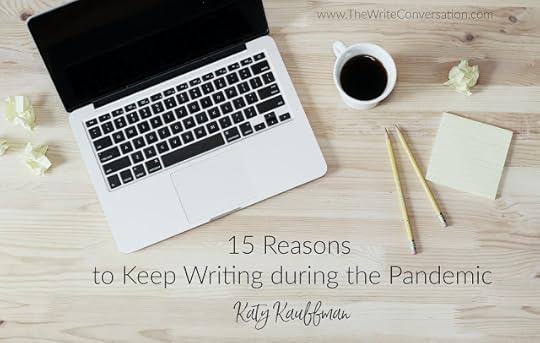
by Katy Kauffman @KatyKauffman28
Are you writing more or less during this pandemic? A Facebook friend asked a similar question, and the replies streamed in. “I can’t focus.”
“I’m too anxious.”
A few writers commented that they were making progress.
“I’m busier now more than ever.”
How about you? If the pandemic has triggered fears and anxieties and brought your writing to a grinding halt, you’re not the only one. Whether it’s a pandemic, spiritual struggles, physical issues, or the familiar brick wall of writer’s block, reasons not to write will haunt us.
But the world needs our writing. We do too. We need the process of working with God to craft encouragement and stories, application of Scripture and answers for life’s problems. As we learn from God how to encourage others, our hearts will be strengthened, and we pray that our readers’ hearts will be, too.
Here’s why we shouldn’t stop writing. People don’t stop hurting.The gospel is still the power of God that gives salvation to everyone who believes in Jesus (Romans 1:16). People are looking for an anchor for their souls.Writing keeps us grounded, tethered to understanding the truth and sharing it.God is still able to work anything for good (Romans 8:28), and He hasn’t abandoned us (Hebrews 13:5).Jesus works alongside His followers (Mark 16:20).We still have a calling to keep and spiritual gifts to use (Romans 11:29, Romans 12:6-8, 2 Timothy 1:6). God may have opportunities for us that we didn’t know were even possible. The light needs faithful soldiers who will fight the darkness (Romans 13:12, 1 Timothy 6:12, Ephesians 6:12). If we skip a season of planting seeds, we will miss a harvest later.God smiles when we write for Him and with Him. God has given each of us a message to share with our particular audience. No one can write exactly like you do—God uses our particular personalities, experiences, and insights to minister to others. Writing is like therapy—a chance to work through our own understanding and emotions to become better people with God’s help.This is the perfect time to have strong voices for God, strong hearts filled with His love, and strong messages to restore hope and bring peace.
When the nagging feeling of “I just can’t” or the age-old question of “Will it do any good?” comes to mind, remember who called you to write, and trust Him that He can get us through this.
Which of the fifteen reasons above is the most meaningful to you? Tell us in the comments below. And from one writer to another—fight, finish, and keep!
“I have fought the good fight,I have finished the race,I have kept the faith.”(2 Timothy 4:7 NKJV)
May we be faithful soldiers and runners—and writers—for God, His kingdom, and His eternal good purposes.
TWEETABLE15 Reasons to Keep Writing during the Pandemic - @KatyKauffman28 on @EdieMelson (Click to Tweet)
 Katy Kauffman is an award-winning author, an editor of Refresh Bible Study Magazine, and a co-founder of Lighthouse Bible Studies. She loves connecting with writers and working alongside them in compilations, such as Feed Your Soul with the Word of God, Collection 1 which is a 2020 Selah Awards finalist. Lighthouse’s newest compilation, The Power to Make a Difference, released January 2020.
Katy Kauffman is an award-winning author, an editor of Refresh Bible Study Magazine, and a co-founder of Lighthouse Bible Studies. She loves connecting with writers and working alongside them in compilations, such as Feed Your Soul with the Word of God, Collection 1 which is a 2020 Selah Awards finalist. Lighthouse’s newest compilation, The Power to Make a Difference, released January 2020. In addition to online magazines, Katy’s writing can be found at CBN.com, thoughts-about-God.com, the Arise Daily blog, and two blogs on writing. She loves spending time with family and friends, making jewelry, and hunting for the best donuts. Connect with her at her blog, The Scrapbooked Bible Study, and on Facebook and Twitter.
Published on August 18, 2020 22:00
August 17, 2020
The Day I Almost Gave Up Writing
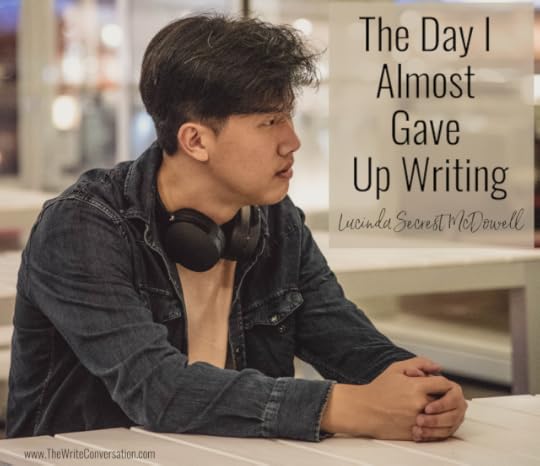
by Lucinda Secret McDowell @LucindaSMcDowel
“I’m not impressed and won’t be sending this manuscript to any publisher. Honestly, no one wants this book, so you may as well start over on something else,” my literary agent said during our appointment at the annual booksellers convention.I was shattered.
I knew about rejections. I had begun my career writing for magazines and had thick files of rejection letters which had only spurred me on to try the next publisher. But now, as an established book author, I was discouraged. Why not just quit? It’s not like anyone would miss a book I haven’t even written!
Yet, I had always tried to live the words “Commit everything you do to the Lord. Trust Him, and He will help you.” (Psalm 37.5) So, as I trudged through the airport in the wee hours of the next morning I silently offered all my writing back to God – praying for guidance and provision.
I even managed to be friendly to the weary traveler in the next chair in the gate area. Even before I found out she was an editor at a large publishing house.
“I’m just curious, as you leave the convention, was there one book idea you had hoped to find from an author?” I said in my most hesitant manner.
“Well, my boss was interested in something that addresses the whole baby-boomers-reaching-middle-age idea. We think that might find a good audience,” she replied.
Did I hear her correctly? Had she really just regretted not being offered something on the very subject of the book proposal now gathering dust in my briefcase?
“Uh, well, I happen to have a book proposal on that very subject. Would you be willing to look it over and see if it might fit your needs?” I stammered.
The startled editor graciously took my manuscript. One year later that new book was published.
From absolute rejection to acceptance in a series of events that could only have been orchestrated by God!
What does it mean to commit everything we do to the Lord?
This simple act of relinquishment means to entrust or put in charge. It also involves the harder internal process of being willing to accept a possible ‘no’ or being redirected on a different path.
I often think back to that very low point in my writing career.
What if I had continued to pout and retreat to a corner seat in the airport waiting gate, ignoring everyone around me? What if I had simply taken my current agent’s advice or stopped writing altogether? I certainly wouldn’t be celebrating the release of my 15th traditional published book right now.
Instead, I chose to prayerfully continue to commit everything to God – the One who called me to write in the first place – and to believe that He would indeed help me. Life is too short to invest in work that doesn’t have God’s hand all over it. Can I truly surrender all to Him?
That’s the place where He wants me to be.
“Lord, I believe in You: increase my faith. I trust in You: strengthen my trust. I love You: let me love You more and more… Guide me by Your wisdom, correct me with Your justice, comfort me with Your mercy, protect me with Your power. I offer You, Lord, my thoughts: to be fixed on You; my words: to have You for their theme; my actions: to reflect my love for You…. I want to do what You ask of me: in the way You ask, for as long as You ask, because You ask it. Amen.” (Clement, 95 AD)
TWEETABLEThe Day I Almost Gave Up Writing - @LucindaSMcDowel on @EdieMelson (Click to Tweet)
 Lucinda Secrest McDowell, M.T.S., is a storyteller and seasoned mentor who engages both heart and mind while “Helping You Choose a Life of Serenity & Strength.” A graduate of Gordon-Conwell Theological Seminary and Furman University, McDowell is the author of 15 books and contributing author to 30+ books. Her award-winning books include
Soul Strong, Life-Giving Choices
,
Dwelling Places
, and Ordinary Graces. Lucinda, a member of the Redbud Writers Guild and AWSA, received Mt. Hermon “Writer of the Year” award and guest blogs monthly for ‘The Write Conversation.’
Lucinda Secrest McDowell, M.T.S., is a storyteller and seasoned mentor who engages both heart and mind while “Helping You Choose a Life of Serenity & Strength.” A graduate of Gordon-Conwell Theological Seminary and Furman University, McDowell is the author of 15 books and contributing author to 30+ books. Her award-winning books include
Soul Strong, Life-Giving Choices
,
Dwelling Places
, and Ordinary Graces. Lucinda, a member of the Redbud Writers Guild and AWSA, received Mt. Hermon “Writer of the Year” award and guest blogs monthly for ‘The Write Conversation.’ Whether coaching writers and speakers, pouring into young mamas, or leading a restorative day of prayer, she is energized by investing in people of all ages. As a communications teacher, she has served on the faculty of Speak Up Conference, Mount Hermon Christian Writers Conference, Blue Ridge Mountains Christian Writers Conference, Florida Christian Writers Conference, Asheville Christian Writers Conference and co-directs the annual spiritual retreat reNEW – retreat for New England Writing & Speaking. Known for her ability to convey deep truth in practical and winsome ways, McDowell shares words from “Sunnyside” cottage in New England and blogs weekly at www.LucindaSecrestMcDowell.com
Published on August 17, 2020 22:00
August 16, 2020
Tips to Add Marketing Pizzazz to Your Publishing Plan, Part 2
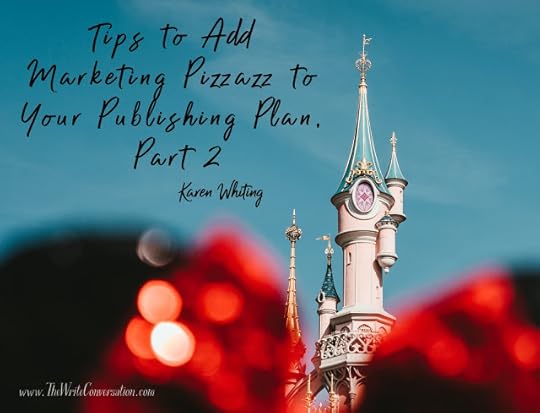
by Karen Whiting @KarenHWhiting
In my last post on Marketing Pizzazz, we looked at how Disney developed marketing ideas to keep customers loyal as outlined in their book Be Our Guest. Disney developed marketing ideas to keep customers loyal. Let’s look at a few more ways to apply Disney’s promotional concepts to books. Disney considers it all customer service, and we should too.The WOW of ProcessAs Walt Disney expanded from creating his own cartoon to a large brand with a theme park, he needed more organization to track everything and let followers know what to expect next. Following his model, process is about communication and connections with readers. Loyal fans want to experience our books to the fullest. That means understanding the road map of the locations in the book. In fiction, this includes character development, and plot twists in fiction. In nonfiction, it means encouraging the application of ideas as well as understanding long term benefits.
Another aspect of process is maintaining an organizational system to manage the information. Keeping a spread sheet or other record of the process should include the marketing activities, reader needs, and book content. Keeping it all in one place helps everything flow together. Marketing with articles, interviews, memes, blog posts, and more, should add to the core message and continue to bring hope to readers or add to the story. Sharing the news of either the contract of the cover reveal begins the marketing process. Blog or social media posts can become part of the story as you disclose what’s happening, share a little about the reader benefits, and why you want to write the book. Recordkeeping helps you know what’s happening and enables you to choose when to share information.
In building theme parks, Walt Disney wanted a location and attractions that provided extra value extra value to develop connections with the reader. He called it plussing. In writing, this is where you give readers more than expected. It can be as simple as a discount coupon or a free download.
Instead of viewing each marketing task as a separate entity, we use a process to build layers of marketing, so it all works together. This brings continuity to promotional efforts. For example, connecting author speaking events to buying the book purchase develops continuity. As potential readers learn more ahead of the event, via radio and other media, you can build sales momentum. Combine those efforts with posts of upcoming appearance and special messages or activities you’ll do in person. These are components of a strategic plan, the outcome of a good process.
The WOW of IntegrationCreate an environment the reader enjoys by integrating your story and talking points with their lives. This brings all the plans together to have a book sell well where the book is well written and edited, the release goes smoothly, and readers respond by buying. You have delivered. Now you can keep things going as you incorporate what readers let you know they want.
Excited and positive responses from readers draws other readers. The author integrates the purpose of the message behind the book by connecting in person and online. This can include creating memes with positive comments from readers or combining elements of marketing to take advantage of the opportunity for more touch points to connect with readers. For example, posting reader comments of a book on grief opens doors for others to share their grief journey. That can lead to retreats with the author. Negative comments are challenges to reach out to your reader community. Hurting readers write a bad review because the book did not provide what they needed. Perhaps they need a different book you can recommend plus a little clarity of your message to remind readers what the book does address. Or the author can write a blog post to show an insight into the book connecting to that need. Some of the comments will challenge the author to improve in the next book or to redefine the brand.
Disney looked at complaints as challenges to improve and integrate new solutions into the parks. That takes analysis and innovation. So, if a book’s opening and cast of characters confuses people, make a downloadable document that lists main people in the story. Listen, analyze, and consider how to respond to complaints. That helps readers know you value them.
The WOW Endings with Fireworks A day at a park usually ends with fireworks or a parade, something big that sparkles and leaves an impression. For books, the ending should be the sparkle that leaves an impression. Gathering the quotes from happy readers and using them in memes or social media stories shares that wow with potential readers. When an author knows the book is part of a series, the final wow is often a glimpse into what comes next. Provide a way to sign up for your newsletter for the reader to be among the first to see the next cover or to know when to preorder. For others, a page in the back of the book that shares how to connect with the author for more interaction or contact information to have the author come speak to a group adds that final wow with a promise that there’s more the author will share.
Step back, check how your overall plan for marketing is working, and see what wow factors you can add!
TWEETABLETips to Add Marketing Pizzazz to Your Publishing Plan, Part 2 - @KarenHWhiting on @EdieMelson (Click to Tweet)
Don't Miss the Other Post in this SeriesTips to Add Marketing Pizzazz to Your Publishing Plan, Part 1Tips to Add Marketing Pizzazz to Your Publishing Plan, Part 2
 Karen Whiting (www.karenwhiting.com) is an international speaker, former television host of Puppets on Parade, certified writing and marketing coach, and award-winning author of twenty-six books for women, children, and families. Her newest book, 52 Weekly Devotions for Families Called to Serve, uses stories, activities, and chat prompts to help families develop servant hearts and foster strong bonds in families who have members serving the community, nation, or world.
Karen Whiting (www.karenwhiting.com) is an international speaker, former television host of Puppets on Parade, certified writing and marketing coach, and award-winning author of twenty-six books for women, children, and families. Her newest book, 52 Weekly Devotions for Families Called to Serve, uses stories, activities, and chat prompts to help families develop servant hearts and foster strong bonds in families who have members serving the community, nation, or world.She has a heart to grow tomorrow’s wholesome families today. She has written more than seven hundred articles for more than sixty publications and loves to let creativity splash over the pages of what she writes. She writes for Leading Hearts and Crosswalk.com. Connect with Karen on Twitter @KarenHWhiting, Pinterest KarenWhiting, and FB KarenHWhiting
Published on August 16, 2020 22:00
August 15, 2020
Writers are Blessed Stenographers

by Tammy Karasek @TickledPinkTam
Recently I came across the quote below on the Blue Bridge Mountains Christian Writers Conference Instagram feed. It’s had me contemplating it ever since. One, because of who wrote it and two because of the power that was in the words. Check it out:
“Writers were blessed stenographers taking divine dictation.” Stephen KingI remember sitting for hours taking shorthand in class, as the teacher would read pages for us to write in those squiggly little shapes that translated into real words. I loved taking shorthand and won quite a few awards in college doing so, I was very fast. I found it both fascinating and fun. When I took my first job as a secretary, I was able to put that practice into use. I diligently wrote down the words my boss would speak whenever he needed correspondence sent. Jack, my boss, was a funny guy. Once he was done telling me what he wanted in his letter, he’d say, “Now read the scribbles back to me.” I enjoyed listening to his voice and writing just what he said. I worked hard and kept at it to be able to keep up with him.
As I read Mr. King’s quote over and over thinking back to the years of using shorthand, it caught my attention that he had said “writers were blessed stenographers.” He’s talking about you and me—we’re the writers. But he said we’re blessed stenographers. Which to me means someone in the position to bless is telling us what to write. A stenographer doesn’t write in shorthand if someone isn’t telling him or her what needs typed. Someone is behind the voice. So who would be the voice for the blessed stenographer?
Mr. King’s last two words answers the question on who that would be, for Christian writers in particular. The voice would be someone divine dictating what needs to be said.
Stop right there. Is anyone else getting goose bumps like I did?
We’ve heard the phrase “if God has called you to do something, He will equip you to do it.” The quote above takes that to a whole new level for me. God has called us to write. Check. He will equip us to do it. Check—wait … how?
Simple.
Through His divine dictation.
Now you can see why this short, sweet quote has had my attention for a good while. And I’m not lying when I say it came on one of those days we writers sometime get when self-doubt and frustration wants to creep in and take over.
But this quote. It was so encouraging and exciting to me when I first read it. I hope it has lifted your spirits as well. We’re not in this writing journey alone, even though it sometimes feels like it. The words we write are coming from divine dictation from the One who blesses us with our stenographic skills of writing.
Be blessed writer, go write the words He dictates to you.
TWEETABLEWriters are Blessed Stenographers - @TickledPinkTam on @EdieMelson (Click to Tweet)
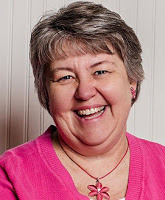 You’ll find Tammy seeing humor and causing laughter in every aspect of life. Her past, filled with bullying and criticism from family, is the driving force of her passion to always encourage others and give them The Reason to smile. She’s been married to her college sweetheart, Larry, for 37 years, a mom to their grown daughter, Kristen, and wrapped around the paw of a little dog named Hattie. Born and raised in Ohio, her family now resides in South Carolina. She is the President of Word Weavers Upstate SC, member of ACFW and My Book Therapy/Novel Academy. She’s the Blog Editor for Word Weavers International. A Conference Assistant for Blue Ridge Christian Writers Conference. A monthly contributor for The Write Conversation. A contributor in the 2018 Divine Moments Compilation Book—Cool-inary Moments. Also a regular contributor to several other blogs.
You’ll find Tammy seeing humor and causing laughter in every aspect of life. Her past, filled with bullying and criticism from family, is the driving force of her passion to always encourage others and give them The Reason to smile. She’s been married to her college sweetheart, Larry, for 37 years, a mom to their grown daughter, Kristen, and wrapped around the paw of a little dog named Hattie. Born and raised in Ohio, her family now resides in South Carolina. She is the President of Word Weavers Upstate SC, member of ACFW and My Book Therapy/Novel Academy. She’s the Blog Editor for Word Weavers International. A Conference Assistant for Blue Ridge Christian Writers Conference. A monthly contributor for The Write Conversation. A contributor in the 2018 Divine Moments Compilation Book—Cool-inary Moments. Also a regular contributor to several other blogs. Connect with Tammy: Blog: http://www.tammykarasek.com Email: tickledpinktammy@gmail.com
Published on August 15, 2020 22:00



